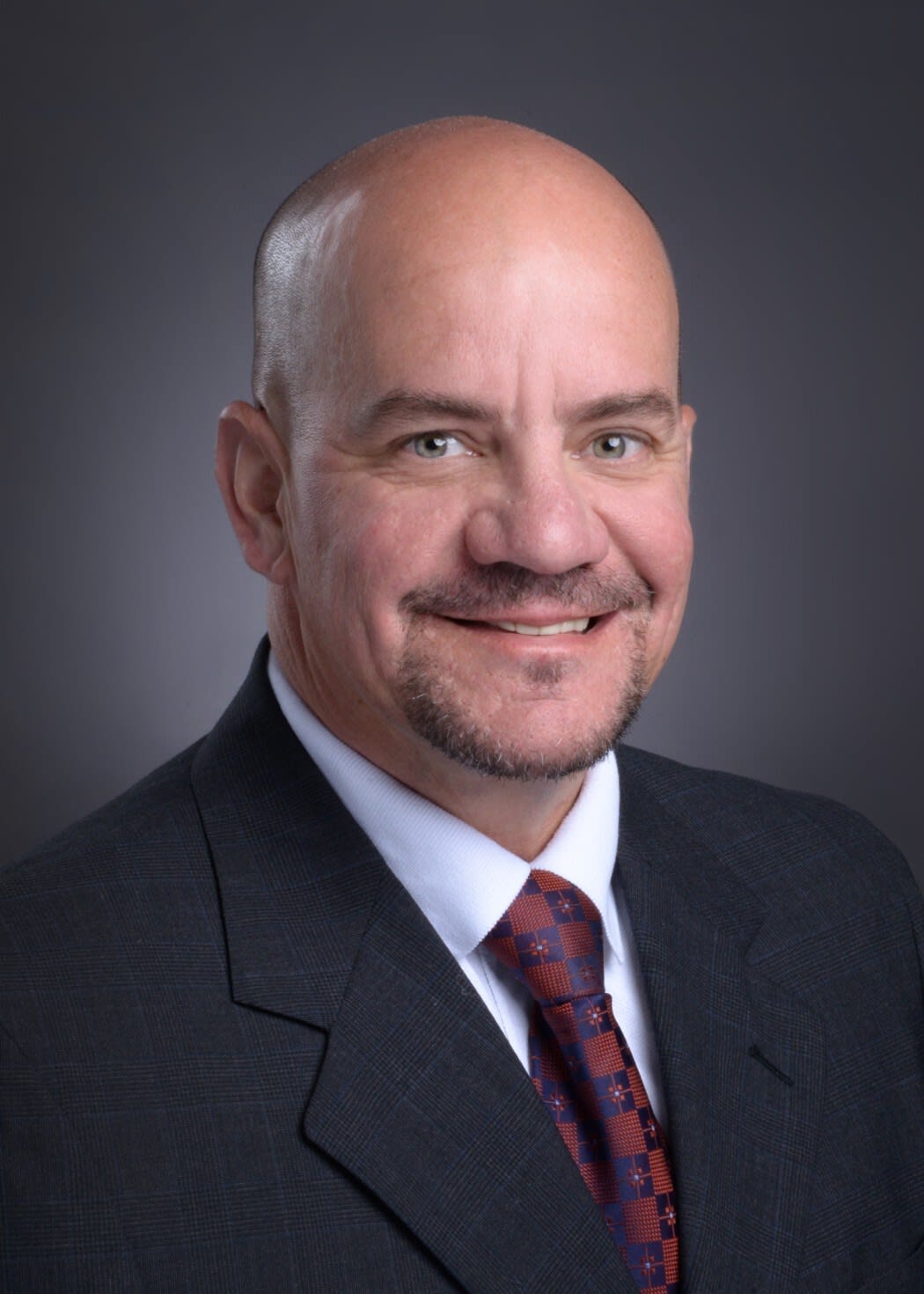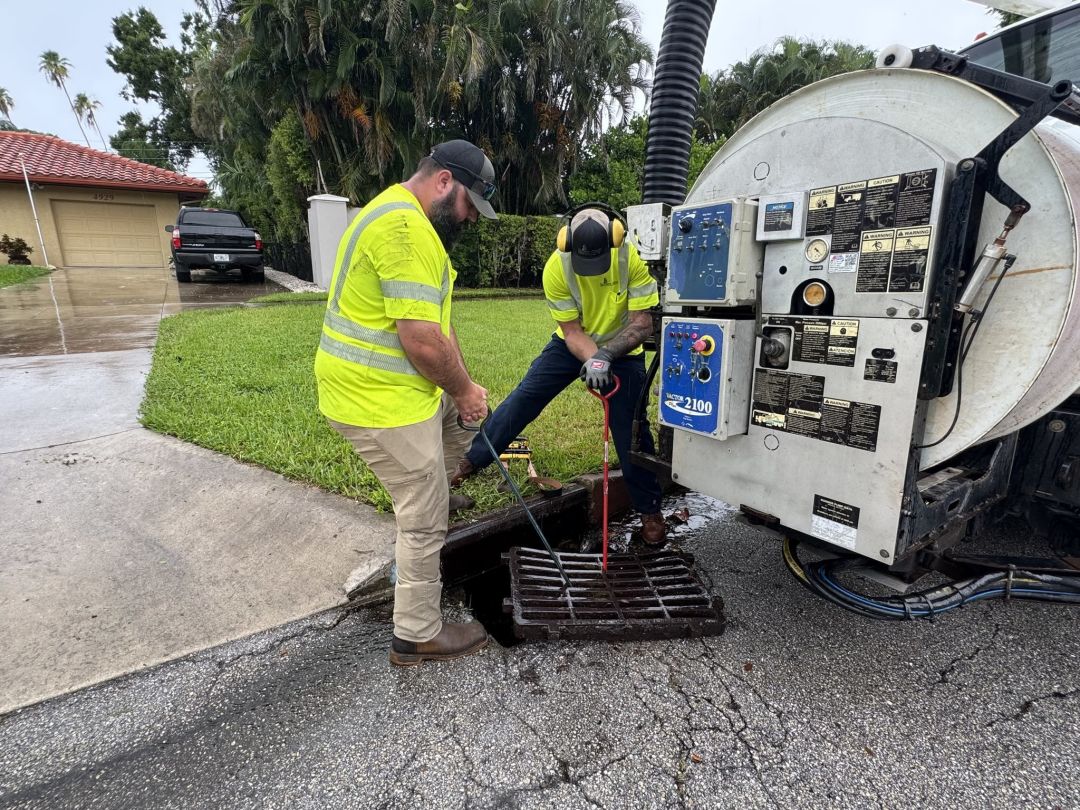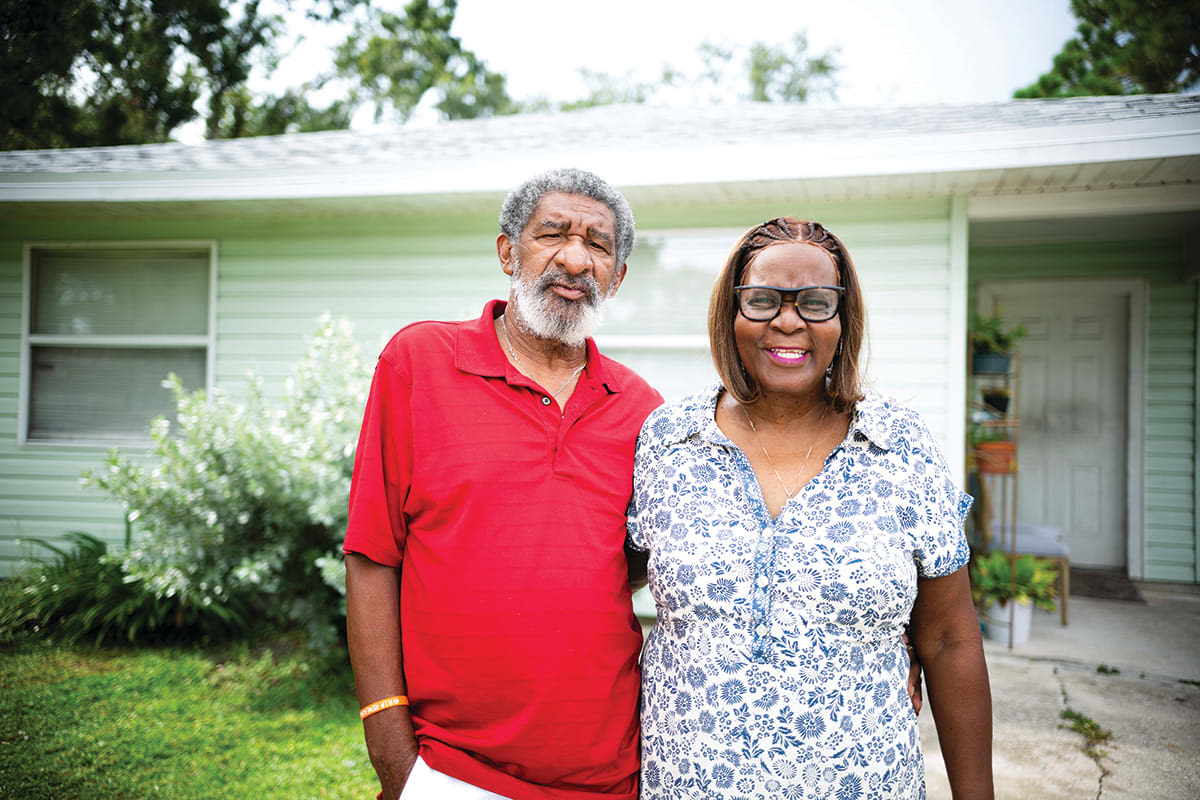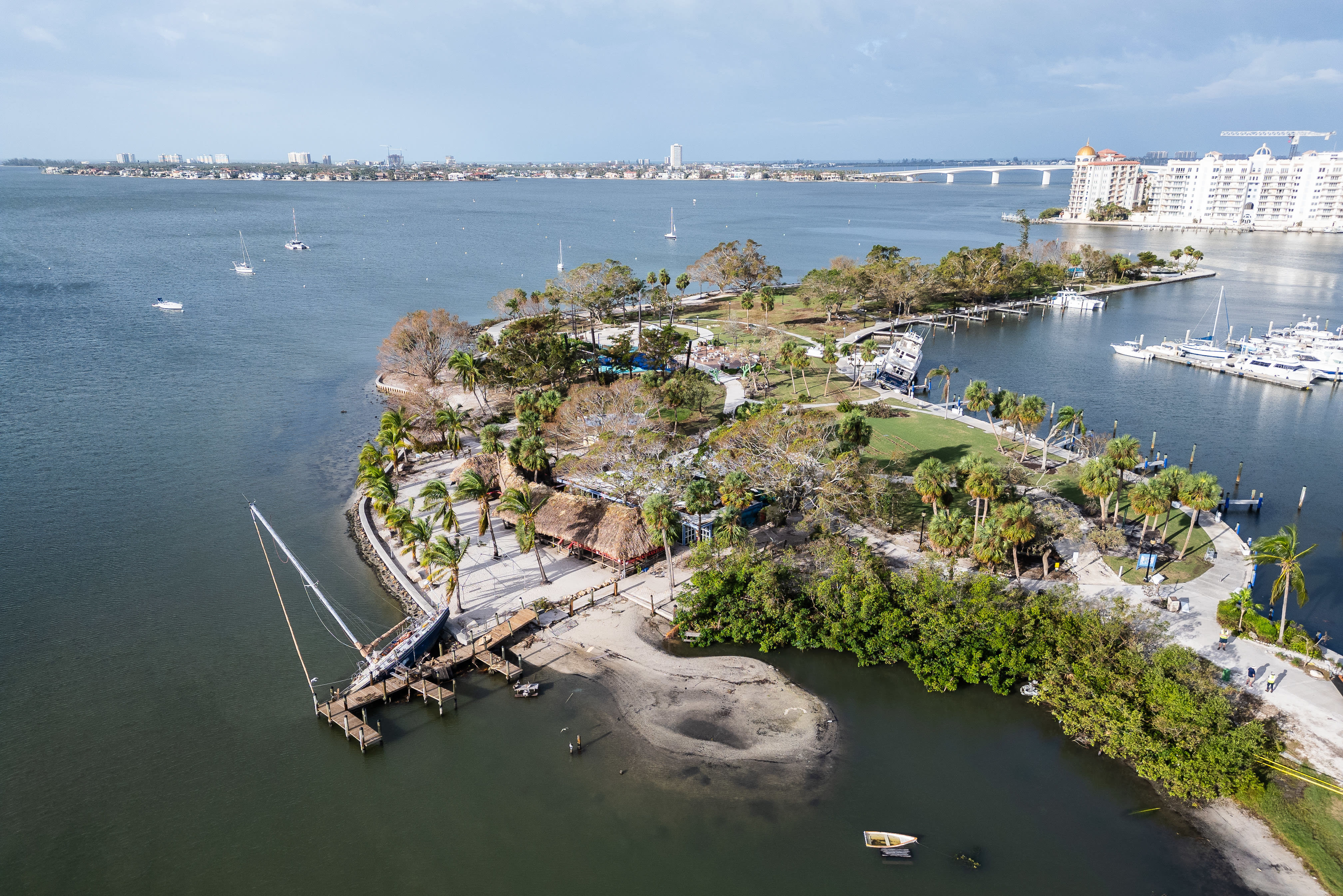
Sarasota County Seeks Stormwater Rate Increase, but Audit Finds Millions Available

Image: Courtesy Pam Furner
Sarasota County administrators are stiff-arming recommendations from a stormwater consultant and plan to push another rate hike on residents despite a new audit showing the utility could have more than $70 million over the next five years without raising rates.
Just two years after a substantial increase in stormwater environmental utility rates, Sarasota County staff is once again asking taxpayers to open their wallets to bolster water quality and flood protections ahead of future storms. The proposed tax increase comes as county leaders scramble to fill gaps in the stormwater system that last year left thousands of homes flooded in unsuspecting neighborhoods miles from the coast.
A joint investigation by the Florida Trident and Suncoast Searchlight into the failures found the county ignored sediment buildup in Phillippi Creek, left key stormwater positions sitting vacant while work orders piled up and overlooked glaring system vulnerabilities noted by consultants years earlier. All contributed to a stormwater utility operating in disarray.
In response, the county hired new Stormwater Director Ben Quartermaine, who has proposed raising annual rates by more than one-fourth, on average, to fund the department’s turnaround.
But the recommendation contradicts a newly released audit by Steve Suau—a retired department head who was hired July 18 as a consultant to review stormwater ordinances and projects. Operating on a $30 million annual budget, his audit notes, the department already has a glut of stormwater money available and suggests not throwing more taxes at the problem.
The competing recommendations will be presented to county commissioners at a stormwater workshop Friday—the fourth this year following the historic flooding in 2024 that sparked widespread community outcry.
“Enough is enough,” Commissioner Tom Knight tells the nonprofit newsrooms. “The overtaxation of our residents has got to end and that includes their stormwater fees. We already have the highest rate per capita in the state.”
Quartermaine, who started in his new position on Aug. 1, has worked with Suau on identifying several issues within the troubled stormwater program. But they haven’t come to terms on funding and priorities.
Suau declined to comment on the record for this story. In an interview with reporters, County Administrator Jonathan Lewis said it’s OK that the two sides disagree. With the Sept. 10 deadline looming to finalize rates for this year, he says it’s up to commissioners to set the direction.
“Steve Suau is a stormwater expert,” Lewis says. “He’s not the stormwater expert.”

Image: Courtesy Sarasota County
Millions of Dollars for More Employees and New Equipment
Since the newsrooms’ joint investigation in June, county leaders insist they’ve worked to address stormwater deficiencies.
For example, commissioners directed Lewis to create a standalone Stormwater Department in early July—stripping it from the control of then Public Works Director Spencer Anderson. Anderson now leads the county’s Transportation Department. Assistant County Administrator Mark Cunningham resigned shortly thereafter.
The department then supplemented its workforce, hiring five contractor teams fielding 16 total crews, all clearing ditches of debris, mowing canal banks and restoring stormwater pipes. Together, they scrambled to chip away at 4,260 maintenance orders that had accumulated—clearing the backlog that existed prior to June 1.
County officials have even focused on public perception, often sharing photos or videos of routine stormwater maintenance on social media.
At the most recent stormwater workshop in May, Anderson pitched an annual stormwater assessment increase of $10 million. Several commissioners balked at the request, including Mark Smith, who said he had heartburn over the proposed assessment.
Residents “just got flooded,” he said. “And now we're gonna give an assessment on something that I believe the county is responsible for?”
The county since has backed off on portions of that request, but staff still wants more funds to solidify the ongoing planned improvements. Its leaders said the extra money is needed to hire more employees and buy new equipment.
If commissioners accept the recommendation, the average homeowner will pay $143.20 into the stormwater utility next year—an annual increase of about $31.
Quartermaine, who’s been on the job about a month, says he’s still reviewing the projects audited by Suau, noting that staff cannot redirect funds without board direction.
“I plan a thorough review of all projects to ensure that they meet the current board’s priorities,” he says.

Image: Courtesy Sarasota County
Suau Audit: Planned Stormwater Projects Lack Public Benefit
To pinpoint what went wrong during last year’s storms, the county brought on Suau as a consultant for the utility he helped form from the ground up decades ago. Since then, he has worked to audit the stormwater utility program, combing through more than 40 ongoing and proposed projects.
Among the audit’s many findings are that most of the department’s planned projects funded through stormwater assessments lacked key details in how they benefit the stormwater system and justification for their costs.
Those projects, which are included on the county’s Capital Improvement Plan, are updated annually and voted on by commissioners. Lewis said any changes to those projects will require board action.
Still, Suau pointed to $70 million in project costs that could be redirected to other priorities in the Stormwater Environmental Utility.
That would free up between $11.5 million to $14 million annually through 2030 without raising assessments on residents.
The audit, completed in August, also identified nearly $5 million budgeted for outside consultants to update watershed management plans and submit maps to the Federal Emergency Management Agency. Suau recommended county staff take on that task to build ownership of its system and build up needed skills in the department.
Suau also recommended the county require each stormwater improvement project to include a benefit-cost analysis, using either FEMA’s federal model or a tool developed by the county in 2018, before moving forward.
“Based upon the information provided by (the stormwater environmental utility), only a couple of the projects contained information enabling a preliminary estimate of the project benefit,” Suau wrote in the 17-page report.
Southgate resident Connie Neeley has attended each of the stormwater workshops after her streets were flooded for three days last year. Her home was not damaged, but she had to kayak to get out of her neighborhood.
Despite the flooding, she told reporters she was opposed to any stormwater rate increase, noting the substantial rate hike just two years earlier.
“We’ve seen nothing for it,” she says. “Any increase in stormwater taxes is not warranted.”
This story was produced by Suncoast Searchlight, a nonprofit newsroom of the Community News Collaborative serving Sarasota, Manatee and DeSoto counties; and Florida Trident, a nonprofit newsroom of the Florida Center for Government Accountability. Learn more at suncoastsearchlight.org and floridatrident.org



